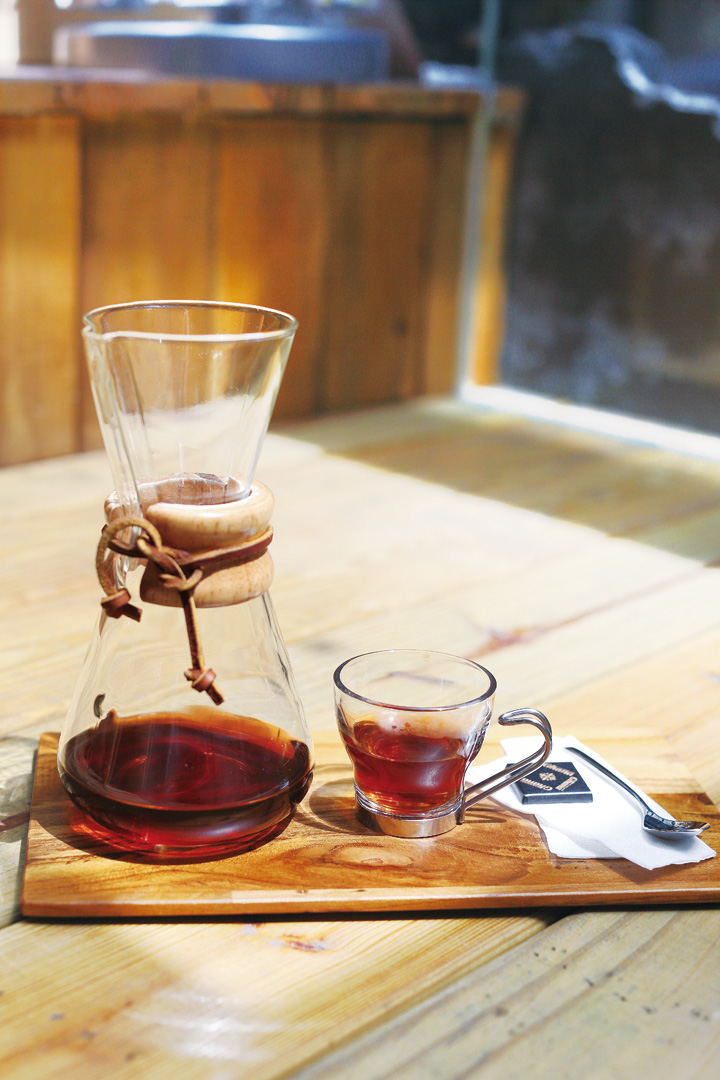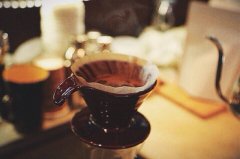The characteristics of Kenyan coffee the characteristics of Kenyan boutique coffee beans

Kenyan coffee features: Kenyan coffee has a multi-layered taste and acidity of fruit juice, perfect grapefruit and wine flavor, moderate alcohol.
Processing: washing method.
Location: Kenya is located on the equator on the Indian Ocean coast of east-central Africa, south of Ethiopia.
Similar coffee: kenyan coffee is most similar to esoteric coffee. In addition to the gazebo mix coffee served in summer, there are also promotional coffees such as East African coffee, some black apron products, etc.
Food pairings: grapefruit, berries, seedless raisins, raisins, oranges.
Tasting advice: Kenyan coffee has a unique taste, and there is almost no coffee like it. Still, it's worth comparing it to Ethiopian coffee. Taste the African acidity and citrus aromas that emanate from each coffee. Kenyan coffee is characterized by a distinct fruity aroma. Try looking for this flavor in your coffee and notice how it feels in your mouth. One of the most common fruit fragrances is citrus.
Unlike most countries of origin, Kenya has a formal coffee marketing organization that cups and grades each batch of coffee before it is sold at auction.
Starbucks doesn't buy coffee at auctions; instead, our suppliers buy coffee they think Starbucks will like and send Starbucks samples. Political conditions, drought and the cultivation of new high-yield coffee trees have kept Starbucks interested in Kenya as a coffee supplier.
Starbucks buys coffee primarily based on coffee flavor, which is why we don't assign Kenyan ratings (e.g.,"AA" or "A"). These grades indicate only the size of the coffee beans.
Fun fact:
The Kenyan Plateau is one of the most important agricultural areas in Africa. Glaciers are found on Kenya Mountain, the second largest peak in Africa. The unique geological conditions are very suitable for wildlife survival, so it is also of great scientific research and economic value.
Agricultural products include tea, coffee, cotton, wheat, sugar, fruits, vegetables, dairy products, beef, pork, poultry and eggs.
Kenya declared independence from Britain on December 12, 1963. Swahili and English are the official languages of Kenya.
Important Notice :
前街咖啡 FrontStreet Coffee has moved to new addredd:
FrontStreet Coffee Address: 315,Donghua East Road,GuangZhou
Tel:020 38364473
- Prev

Would you prefer coffee or tea? Which is healthier, tea or coffee?
Study: drinking tea and coffee helps prevent kidney cancer A study shows that people who like coffee and tea may have a slightly lower risk of developing kidney cancer. The researchers analyzed the results of 13 previous studies that showed that drinking coffee and tea could prevent kidney cancer, while drinking milk, soda and fruit juices seemed to have no effect on kidney health. Previous studies have shown that drinking three or three cups a day
- Next

Kenyan coffee AA grade Kenyan AA coffee is one of the rare good coffee
Kenyan AA coffee Kenya AA coffee is one of the rare good coffees. It is famous for its rich aroma and balanced acidity and is loved by many foodies. It is perfect and balanced, and has a wonderful and strong flavor, both fresh and not overbearing, is a complete but not heavy taste experience. Kenyan coffee is generally grown at an altitude of 1500 to 2100 meters.
Related
- Detailed explanation of Jadeite planting Land in Panamanian Jadeite Manor introduction to the grading system of Jadeite competitive bidding, Red bid, Green bid and Rose Summer
- Story of Coffee planting in Brenka region of Costa Rica Stonehenge Manor anaerobic heavy honey treatment of flavor mouth
- What's on the barrel of Blue Mountain Coffee beans?
- Can American coffee also pull flowers? How to use hot American style to pull out a good-looking pattern?
- Can you make a cold extract with coffee beans? What is the right proportion for cold-extracted coffee formula?
- Indonesian PWN Gold Mandrine Coffee Origin Features Flavor How to Chong? Mandolin coffee is American.
- A brief introduction to the flavor characteristics of Brazilian yellow bourbon coffee beans
- What is the effect of different water quality on the flavor of cold-extracted coffee? What kind of water is best for brewing coffee?
- Why do you think of Rose Summer whenever you mention Panamanian coffee?
- Introduction to the characteristics of authentic blue mountain coffee bean producing areas? What is the CIB Coffee Authority in Jamaica?

